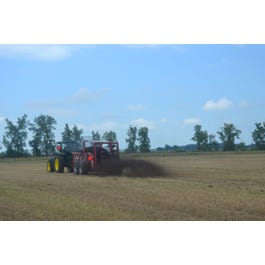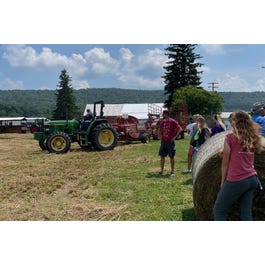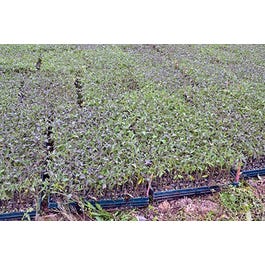
The store will not work correctly when cookies are disabled.
News
Resources are available for farms to develop their own Manure Management Plan to help protect waterways.
October 14, 2024
In April 2024, the Pennsylvania Department of Environmental Protection (DEP) released updated Manure Management Plan guidance. The purpose of this article is to provide resource connections for farms to develop their own Manure Management Plan. The brief description of the manure management planning process found here contains embedded resource links, such as those found at the DEP Clean Water Academy.
Every farm that generates or utilizes manure in the state of Pennsylvania must do so under the guidance of a current management plan. The type of plan a farm in the state needs is determined by animal numbers and whether the farm manages enough land so produced manure nutrients can be utilized by crops under the farm’s management control. To determine what type of plan a farm needs, you can utilize the decision trees found at this Penn State site or contact your local conservation district. For most farms, the required plan is a Manure Management Plan.
Manure Management Plans can be developed by anyone and are not subject to a review or approval process. Still, it is the law that a completed plan is maintained and followed. Developing a plan is a very useful process and can assure that farms get the best agronomic and economic value from their manure nutrients by applying them to meet crop needs. Additionally, a plan protects the environment by providing guidance on manure application setbacks and addressing risk and management of animal concentration areas.
The guidance released in April 2024 contained a new option for farms that have smaller animal numbers known as the Manure Management Plan Short Form. The short form contains a series of questions that managers can answer to determine if the regular version of a Manure Management Plan is needed. Some of the criteria topics of the short form include the following:
- Less than 8,000 pounds of combined animal weight.
- At least one acre of land that can receive manure for every 1,000 pounds of animals.
- Manure application is always at least 100 feet away from wells, streams, lakes, springs, ponds, sinkholes, concentrated water flows, and above-ground inlets to agricultural drainage systems.
- No land application occurs during the winter. Winter is defined as between the dates of December 15th and February 28th, or anytime ground is frozen to a depth of 4 inches or anytime there is snow on the field.
- All manure is handled as a solid and not a liquid or semisolid.
- Pastures are managed to maintain at least 3 inches of vegetation height and 70% perennial vegetative cover when animals are present on pasture.
- The farm has no barnyards, feedlots, loafing areas, exercise lots, or other animal confinement areas that prohibit the growth of pasture.
The Pennsylvania DEP houses forms and guidance documents on a main Manure Management webpage, however, DEP has also developed helpful completion directions and planning examples that are available through the DEP Clean Water Academy. The webpage offers a central location for plan development, including an instructional course that can guide you through plan development.
If questions arise during the development of a Manure Management Plan, please reach out for assistance. It is best to develop the plan correctly and many knowledgeable professionals are available to assist development at your county conservation district, Penn State Extension, and the Pennsylvania DEP.






